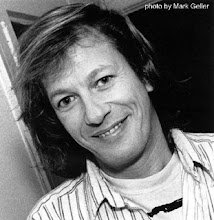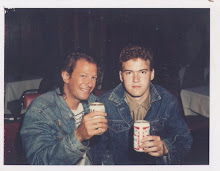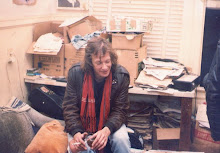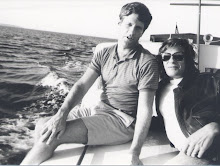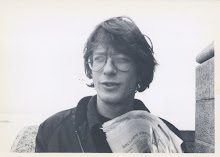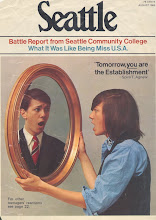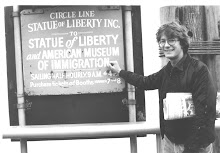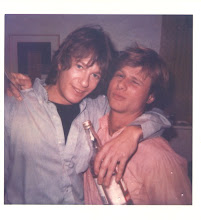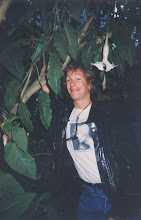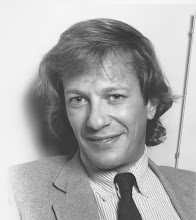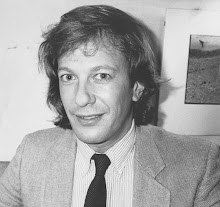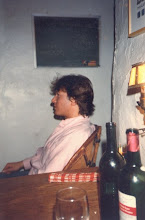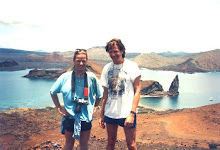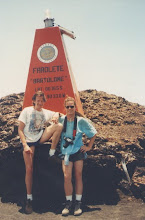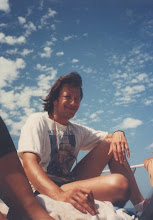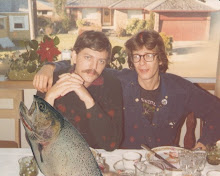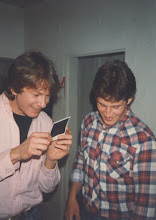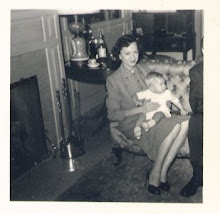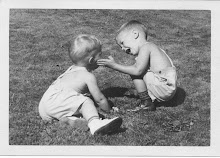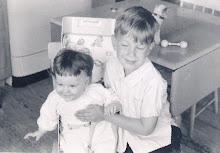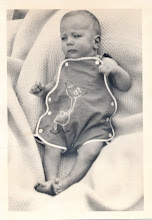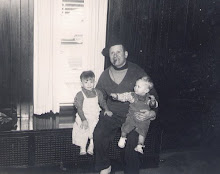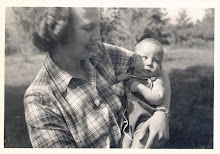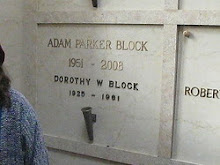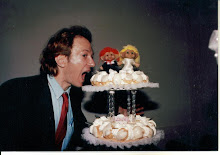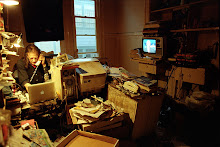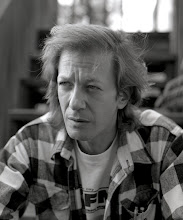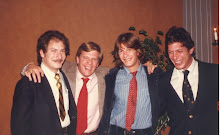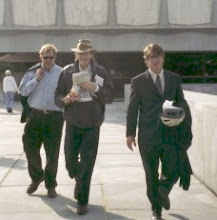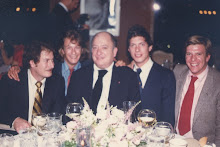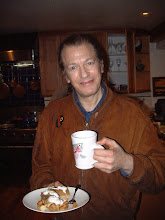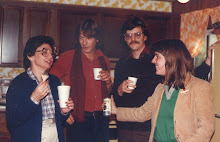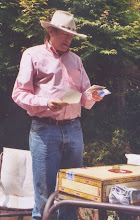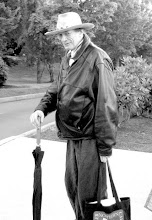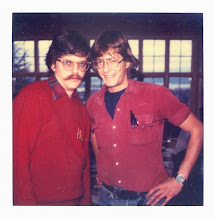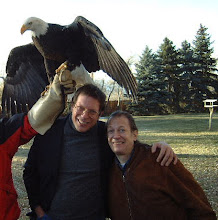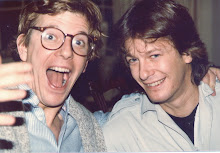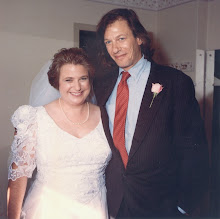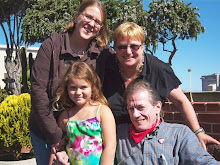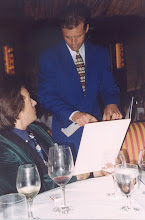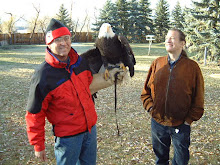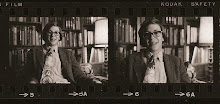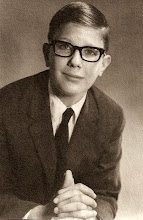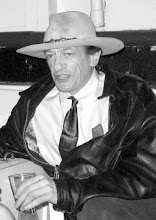Jenny and I have been thinking about you. It's this season that Adam died, and we have found ourselves looking for the wine we had at your memorial dinner for him. We hope you're well and that our paths will cross again before too long.
The essays I wrote for the Chez Panisse 40th Anniversary book weren't published, as the publisher insisted that the text be by Alice (reasonably enough), but I thought you might like to see the last chapter in any case.
Greil Marcus
Chez
Panisse
2000s
Chez
Panisse came into being as a place where people could gather, to mark
occasions or in search of them, and over the years it has become a
place of rituals.
That
was perhaps especially true in first decade of the twenty-first
century. Despite two stock market crashes, the wrecking-ball
recession that began in 2008, and California falling into an
ungovernable, deteriorating morass, Chez Panisse was finally on firm
financial ground. There were crises over individuals and long-range
plans, debates over remaining true to the past and shaping the
future, but day to day, night by night, the food coming out of the
two kitchens could have the laughter, earnestness, and dash of the
first year, the tenth, the twentieth, the thirtieth. And rituals
were a great part of why on any given night Chez Panisse could seem
completely new.
People
build their years around the annual garlic dinners for Bastille Day,
the Zinfandel festivals in December, Parsi New Year in the spring, or
weeks when asparagus, crab, salmon, morels, and especially tomatoes
seem to be on every menu if not part of every dish. There is New
Year’s Eve, for years featuring the late Charles Brown, who in the
1940s had reinvented American music with “Drifting Blues” and
“Merry Christmas, Baby,” and who appeared at Chez Panisse dressed
in cape and fez like a king out of the Arabian Nights. But even more
vital than that are the rituals that people have made themselves.
Sometimes
it can seem less that people go to Chez Panisse to mark birthdays and
anniversaries than that they have birthdays and anniversaries so they
can go to Chez Panisse. That’s so often the sense of the
celebration, where the welcome, the food, the service, and the
ambiance have to rise to the occasion—and then, if the salmon roe
surrounding tortellini in a cream sauce breaks against your teeth
with a pop you can
almost hear as well as feel, or a plate of yellow, red, green, and
purple tomatoes in oil and parsley smells so completely of what it is
that, for a moment anyway, actually tasting it seems redundant, the
occasion rises to the food, the service, the ambiance, the good
night.
Engagement
parties and wedding dinners, welcoming dinners for people arriving in
the Bay Area and farewell dinners for people leaving. Recruiting
meals for professors the university is trying to seduce—and yet, of
all the rituals one might take part in at Chez Panisse, perhaps the
most striking mark deaths. That is because so many people took such
pleasure there that they made it known that when they died they
wanted their family and friends to sit down in the café or the
restaurant and take the same pleasure in memory—or simply because
it might seem like the right place to conjure up a person’s spirit.
One
gathering in 2008 was deeply commonplace—in other words, the sort
of occasion the restaurant had been created to serve. Eleven people
had come together in memory of a friend who had died earlier in the
year at fifty-six.
He was tall, handsome, an exasperating, heedless man, a
guest who was always late if he appeared it all, a person of
bottomless enthusiasms and appetites for food, drink, drugs, music,
people, movies, politics, books, cigarettes, and talk, talk, talk,
talk. “With his death,” his obituary concluded, “the lives of
those who knew him will be calmer and quieter but far less
interesting.” He’d loved Chez Panisse; the people present that
night were there to keep life interesting.
The
months and years before had taken him from one hospital or rehab
center to another, some bright and hopeful, some dingy and entropic,
plainly leading only to a place a little better or a little worse.
So when people sat down under the light sconces in the dining room
downstairs at Chez Panisse, taking in the Arts & Crafts woodwork
and metal work designed and built more than twenty years before by
the carpenter Kip Mesirow, it was hard to touch the real spirit of
the person we were there to talk about, so people looked at the
menus. There was a picture of red and white blossoms on the front,
with an Art Nouveau Chez Panisse colophon.
Jean-Pierre
Moullé was cooking that night, alternating every six months as the
head chef with David Tanis. The first course came out, asparagus
salad with almonds, Parmesan, and arugula, as if in lieu of the
conversation people weren’t ready to have. There was a Jermann
Vintage Tunina and an Old Vines Turley Zinfandel on the table, and
toasts over it: “But perhaps not pronounced too loudly,” as one
person there said of the one who wasn’t put it, “for fear that he
might show up, and tell us how to do it right, how to say it with
style.” And then he did show up, and it was, people agreed later,
wondering how this sort of alchemy works, because of something in the
second course, sautéed scallops with green garlic and chives. So
the night took off, with a recreation of the élan we were really
there to celebrate. What would be the place where you had to go, the
band you had to see, the politician you had to hate, the book you had
to love, and how long would you have to wait? The dinner had moved
on to rack and loin of lamb with herbs, anchovies, breadcrumbs,
potatoes, artichokes, and spring oinions, and then to a lemon
meringue tart, there were more bottles brought and taken away, and in
the rush of talk there were pauses, too—as each person, in his or
her own moment, seemed to consider just how lucky it was that they
could be in this place, this night, with the frisson of each new
smell or taste or sight from the plates before them. Finally it was
almost impossible to leave; what the place had provided was a sense
that no one present would ever be so close to their friend, or even
each other, again. “His illness,” one of his oldest friends said
afterward, speaking for everyone who was there, “had forced us to
occupy ugly rooms—hospitals, offices, laundromats, his impossible
apartments—but on this night we sat down together in the softness
and sparkle of wood and copper, linens and glass.”
Today
you can go anywhere—to restaurants or farmers’ markets in
Minnesota or Provence, to Troisgros in Roanne to a razor clam shack
on the Oregon coast—and find the presence, the influence,
inspirations, and aspirations, of Chez Panisse. You can find it in
style, in modesty, in the crafting of better and fresher foodstuffs,
simpler cooking, in food that has been raised, harvested, marketed,
prepared, and presented in a way that allows it to speak for itself.
And yet if you return to Chez Panisse, sit down, and, if the moment
is right, taste what you ought to taste, smell what you ought to
smell, it will explode with a sensual brightness that makes you
think, no, there is no place like this, not anywhere.
“That’s
because it’s home—but
your home can be
anywhere,” Alice said one day when the notion came up. “These
ideas, these values—the values or gathering over food, of cooking
by the seasons, of drawing on what’s around you, are universal.
That’s why they can work anywhere”—and if values are universal
it is precisely because every place and every time is different. If
the impulse is to make your own history, and find a way to let your
own small story open up into a greater story, a greater history, then
you come to understand that the smallest is also the biggest. “You
reach the level of the terroir,”
Alice says. “You discover your own place, what it has done, what
it can do. You search for the taste of your own place. You reach
bedrock—and begin from there. The taste that makes you feel that
there is nothing like this place anywhere—it’s because every
place is different.”
“It’s
the senses,” Sharon Jones says, putting the same ideas into
different words. “That’s what Alice has always said, from the
start: ‘Smell, sound, light, taste.’ That’s it. Open people’s
senses up—and that
will change how they see life and the world,” their sense of what
it is and what it’s for.

